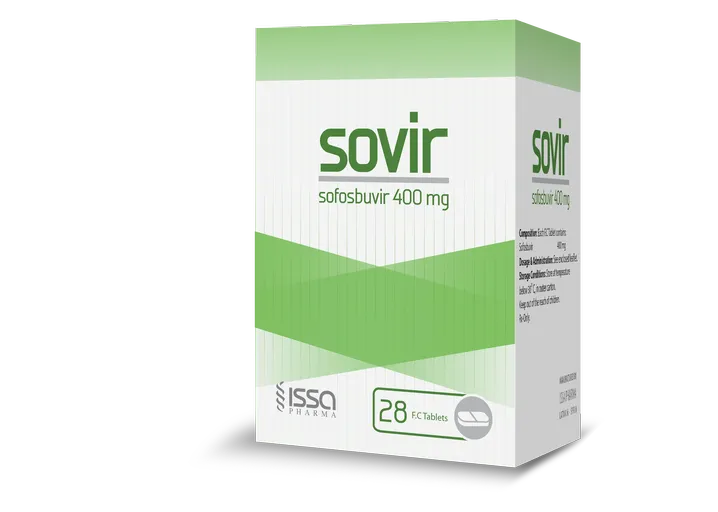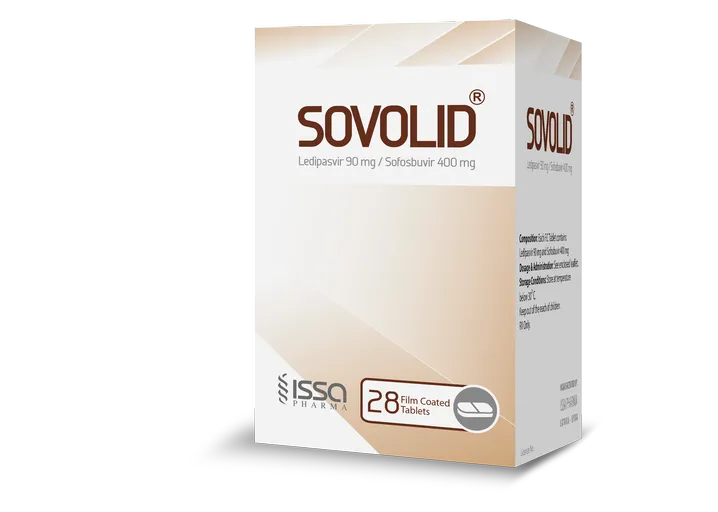Hepatitis C is a viral infection that causes liver inflammation and damage. Over time it can lead to serious complications like cirrhosis, liver failure, and liver cancer. Thankfully, the development of direct-acting antiviral medications has revolutionized the treatment of hepatitis C over the past decade.
Understanding Hepatitis C
Hepatitis C is a viral infection that primarily affects the liver. It is predominantly transmitted through exposure to infected blood, such as sharing needles, receiving contaminated blood transfusions, or through unprotected sexual contact with an infected person. In rare cases, mother-to-child transmission during childbirth can occur.
Causes and Risk Factors
Understanding the causes and risk factors of hepatitis C is crucial for prevention. Intravenous drug use, unprotected sex with multiple partners, receiving organ transplants or blood transfusions before widespread screening, and sharing personal hygiene items that may come in contact with blood are common risk factors for contracting the virus.
Symptoms
Hepatitis C is often referred to as a “silent” disease because it can progress without noticeable symptoms for many years. However, when symptoms do occur, they may include fatigue, abdominal pain, loss of appetite, dark urine, pale stools, jaundice (yellowing of the skin and eyes), and joint pain. It is important to note that symptoms can vary among individuals, and some may remain asymptomatic for an extended period.
Diagnosis
Accurate and timely diagnosis is essential for managing hepatitis C effectively. A blood test known as the Hepatitis C Antibody Test is typically the first step in identifying the presence of hepatitis C antibodies. If the antibody test is positive, a follow-up test called the HCV RNA test is performed to confirm the active infection and determine the viral load.
Treatment
Advancements in medical research have revolutionized the treatment landscape for hepatitis C. Direct-acting antiviral (DAA) medications offer high cure rates and shorter treatment durations. These medications target the hepatitis C virus, inhibiting its replication and allowing the body to clear the infection. Treatment regimens may vary depending on the specific genotype of the virus and individual patient factors. It is essential to consult a healthcare professional to determine the most suitable treatment plan.
Prevention
Prevention plays a crucial role in combating hepatitis C. Educating individuals about the risk factors and promoting safe practices is essential. This includes practicing safe sex, avoiding sharing needles or personal hygiene items, ensuring proper sterilization of medical equipment, and promoting blood screening and organ transplant safety measures. Vaccines are not available for hepatitis C, making prevention through awareness and behavioral changes even more critical.
Hepatitis C is a significant global health concern, but with increased awareness, accurate diagnosis, and effective treatment options, we can make significant strides in combating this disease. As a responsible pharmaceutical company, we are committed to providing valuable information and promoting comprehensive healthcare. Remember, early detection, prompt treatment, and preventive measures are key to fighting hepatitis C and improving the lives of individuals worldwide.
Interferon-Based Regimens
In the past, the treatment for hepatitis C involved long-term injections of interferon, a type of protein that helps modulate the immune system’s antiviral response. This approach was often combined with ribavirin, an antiviral medication, to improve cure rates. However, this treatment regimen was challenging for patients due to significant side effects.
Fortunately, advancements in medical research have led to the development of direct-acting antiviral (DAA) drugs. In 2011, breakthrough drugs like telaprevir and boceprevir were introduced, transforming the landscape of hepatitis C treatment. These early DAA drugs, known as protease inhibitors, targeted specific enzymes essential for the replication of the hepatitis C virus.
The addition of telaprevir and boceprevir to the treatment regimen significantly improved success rates, increasing the likelihood of achieving a cure. However, therapy duration remained relatively long, typically lasting 48 weeks. During this extended treatment period, patients had to adhere to strict medication schedules, which could be challenging.
Since then, further advancements have been made in hepatitis C treatment. Second-generation and third-generation direct-acting antiviral drugs have been developed with improved efficacy and shorter treatment durations. These newer medications specifically target different stages of the hepatitis C virus’s life cycle, inhibiting its replication and leading to higher cure rates.
Today, the standard treatment for hepatitis C involves combinations of different DAAs, often in the form of oral medications taken once daily. Treatment duration has been significantly reduced, with some regimens lasting as short as 8 to 12 weeks, depending on the specific genotype of the virus and individual patient factors. These shorter treatment durations have not only increased cure rates but also improved patient adherence to therapy.
Moreover, the newer DAA regimens have shown a better safety profile compared to interferon-based therapies. Patients experience fewer side effects, allowing for a more tolerable treatment experience. However, it is important to note that individual responses to treatment may vary, and it is crucial to consult with a healthcare professional for personalized advice and guidance.
The evolution of hepatitis C treatment, from interferon-based therapies to the introduction of direct-acting antiviral drugs, has revolutionized patient care. With shorter treatment durations, improved cure rates, and better tolerability, individuals living with hepatitis C have greater hope for achieving a cure and improved long-term outcomes.
We remain committed to advancing hepatitis C treatment and providing innovative solutions that contribute to the global fight against this disease. We strive to ensure that patients have access to the latest treatment options and that healthcare professionals are equipped with the knowledge to make informed decisions in managing hepatitis C. Together, we can continue the fight against hepatitis C and improve the lives of individuals affected by this condition.
Transition To DAA Regimens
Direct-acting antivirals (DAAs) have brought about a revolutionary shift in the treatment of Hepatitis C (HCV) by directly targeting proteins crucial for the replication of the HCV virus. One such groundbreaking DAA is sofosbuvir, which gained approval in 2013. Sofosbuvir holds the distinction of being the first highly effective pan-genotypic DAA, as it effectively inhibits the NS5B polymerase, a key enzyme required for viral replication.
Initially, sofosbuvir was used in combination with pegylated interferon and ribavirin, representing a significant improvement over previous treatment options. This combination therapy yielded higher cure rates, but it was still burdened with the side effects and challenges associated with interferon-based regimens.
However, medical advancements swiftly progressed, and within just two years, interferon-free DAA combination regimens emerged as the new standard of care for HCV treatment. These regimens offered substantial benefits, including reduced treatment durations and improved tolerability.
The interferon-free DAA combination therapies have proven to be highly effective across different genotypes of the HCV virus. By targeting specific viral proteins, such as the NS3/4A protease, NS5A protein, and NS5B polymerase, these DAAs interrupt the replication process and inhibit the spread of the virus within the body.
The introduction of interferon-free DAA combination regimens marked a significant milestone in HCV treatment. These regimens not only achieved higher cure rates but also drastically reduced the duration of treatment, typically ranging from 8 to 12 weeks, depending on the specific genotype of the virus and individual patient factors. Shorter treatment durations have not only enhanced patient adherence but have also minimized the overall impact on their daily lives.
Moreover, interferon-free DAA regimens have exhibited improved tolerability profiles, with a reduced incidence of adverse effects compared to interferon-based therapies. Patients experienced fewer side effects, leading to a better treatment experience and improved quality of life during the course of therapy.
The availability of highly effective interferon-free DAA combination regimens has transformed the landscape of HCV treatment. These regimens have provided renewed hope for individuals living with HCV, offering them a greater chance of achieving a cure and preventing disease progression. Furthermore, the pan-genotypic nature of some DAAs has simplified treatment decision-making, eliminating the need for genotype testing and allowing for more streamlined and accessible care.
At Issa Pharma, we remain at the forefront of HCV treatment advancements, continuously striving to develop and provide innovative solutions. Our commitment lies in ensuring that healthcare professionals and patients have access to the latest and most effective DAA therapies. By leveraging the power of direct-acting antivirals, we are actively contributing to the global fight against HCV and improving the lives of individuals affected by this disease.
It is important to note that individual responses to treatment may vary, and consulting with a healthcare professional is crucial for personalized advice and guidance. Together, let us continue to make significant strides in the fight against HCV and work towards a world free from the burden of this viral infection.
Today’s Standard of Care
The current guidelines set by the American Association for the Study of Liver Diseases (AASLD) have revolutionized the standard of care for hepatitis C (HCV) treatment. Interferon- and ribavirin-free combination therapies using direct-acting antivirals (DAAs) have become the recommended approach, offering high efficacy and improved tolerability. Several DAA regimens have been endorsed, including:
- Epclusa (sofosbuvir/velpatasvir): This combination therapy, administered over a 12-week period, has demonstrated excellent results across various HCV genotypes. Epclusa’s pan-genotypic activity makes it an effective treatment option for a wide range of patients.
- Mavyret (glecaprevir/pibrentasvir): Mavyret is a highly effective DAA regimen that boasts a shorter treatment duration of just 8 weeks. It is indicated for most HCV genotypes, including those with compensated cirrhosis, making it a versatile and efficient treatment option.
- Vosevi (sofosbuvir/velpatasvir/voxilaprevir): Specifically designed for patients with difficult-to-treat genotypes or prior treatment failures, Vosevi is administered over a 12-week period. This regimen combines three potent DAAs, providing a robust and effective treatment option for those who may have limited alternatives.
These direct oral DAA regimens have demonstrated remarkable success rates, with sustained virologic response at 12 weeks (SVR12) exceeding 95%. Achieving SVR12 indicates a cure for HCV infection, highlighting the transformative impact of these therapies on the lives of patients. The introduction of these regimens has significantly shortened treatment durations to just 8-12 weeks, minimizing the burden on patients and improving overall adherence to therapy.
The remarkable progress in hepatitis C therapy is a result of continuous pharmaceutical innovation and research. Ongoing efforts are dedicated to optimizing treatment regimens further and ensuring access to these life-changing therapies for all individuals affected by HCV. This includes exploring new combinations, evaluating the effectiveness in special populations, and addressing barriers to treatment access.
As a dedicated pharmaceutical company, we actively contribute to these efforts by developing innovative DAA therapies and collaborating with healthcare professionals and advocacy groups. Our goal is to optimize HCV treatment outcomes, enhance patient care, and alleviate the global burden of this chronic liver disease.
It is important to note that individual patient factors and the specific HCV genotype may influence the choice of treatment regimen. Healthcare professionals play a vital role in assessing each patient’s unique circumstances and providing personalized treatment recommendations.
Together, we will continue to advance the field of HCV treatment, ensuring that all patients have access to effective therapies and improving the lives of individuals affected by this chronic disease.



